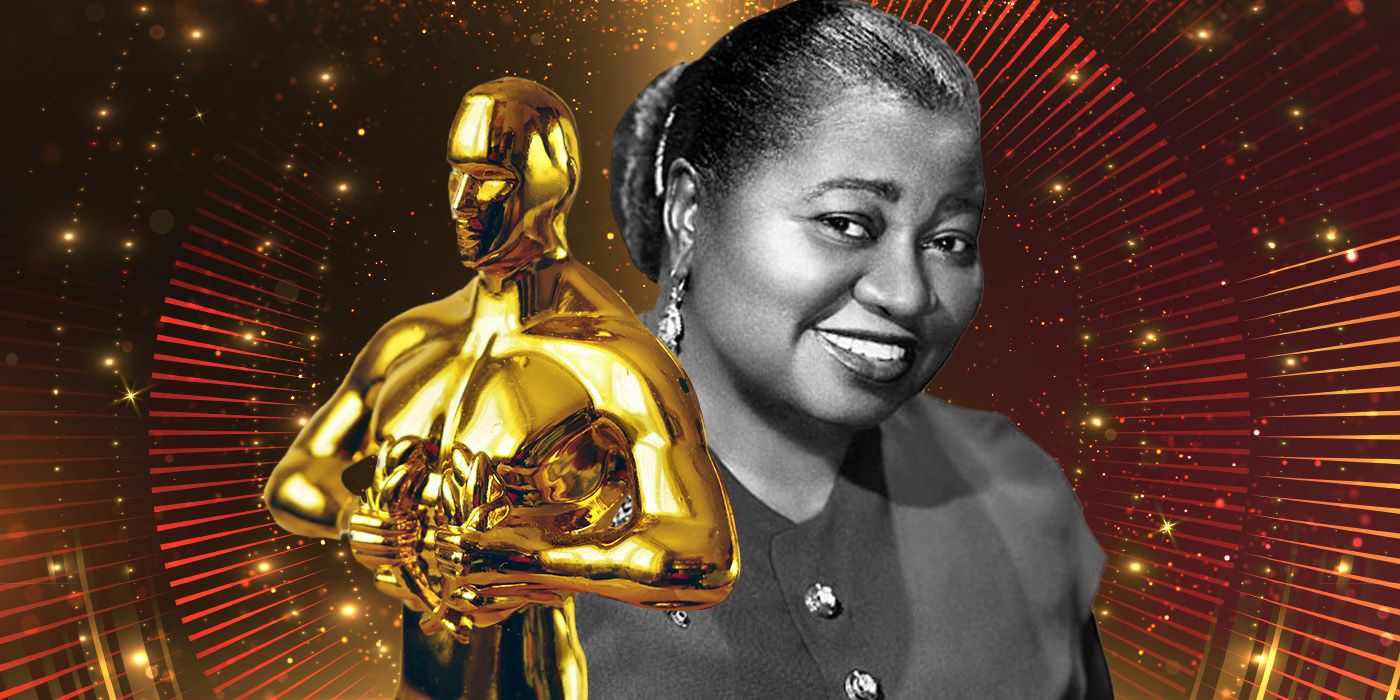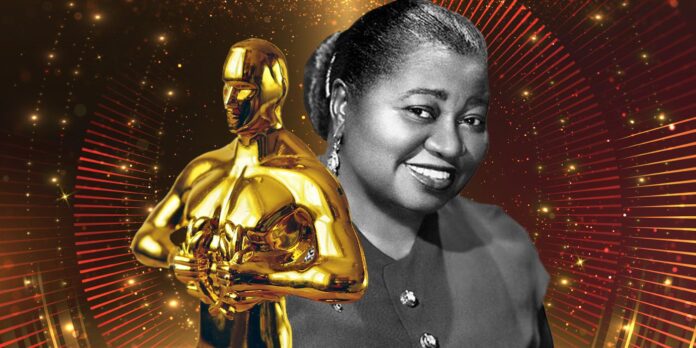
Hattie McDaniel, the primary Black actor to win an Oscar, made a profound assertion in her 1940 acceptance speech, saying, “I sincerely hope that I shall all the time be a credit score to my race and to the movement image trade,” which is one loaded line. McDaniel appreciated the advanced and difficult place of Black actors in Hollywood on the time whereas understanding the importance of her achievement and the duty it positioned on her shoulders. She was conscious of the racial prejudices and typecasting that Black actors had been subjected to, furthering the which means of what the position she was being awarded for portraying meant. But she needed to step ahead, because it was essential to face on that podium that historic night. As per SmithsonianJournal, dealing with criticism that her groundbreaking portrayal as a housemaid within the 1939 hit Gone with the Wind perpetuated racial stereotypes, McDaniel stated this of her Oscar win:
“My very own individuals had been particularly joyful. They felt that in honoring me, Hollywood had honored your complete race. That was the best way I wished it. This was too massive a second for my private backslapping. I wished this event to show an inspiration to Negro youth for a few years to return.” — Hattie McDaniel
Whereas McDaniel’s win was positively a step in the best route, it was layered with contradictions that increase the query: Was it actually as a lot progress as beforehand thought?
Hattie McDaniel’s Function in ‘Gone with the Wind’ Was Problematic
For many who might not have seen the movie, Hattie McDaniel performs a housemaid slave in the Civil Struggle-era setGone with the Wind. Her embodiment of her character, Mammy, is emblematic of the typecasting that Black actors had been confined to throughout Hollywood’s Golden Age. As Mammy, McDaniel is a caricature rooted in servitude, and whose existence is solely to serve the pursuits of her enslavers, the O’Hara household, whereas neglecting her personal. The movie would not delve into any of her wants if they don’t seem to be tied to the O’Haras. In a single scene, Scarlet (Vivien Leigh), one of many daughters of the O’Haras, whereas exercising her leverage throughout an argument, tells Mammy that she won’t eat a chunk of the meals Mammy had ready for her if she rats her out to her mom. McDaniel’s position strengthened the “sassy mammy” trope — a problematic archetype decreasing a Black girl to dehumanizing depictions of a home slave with unwavering loyalty to a white household.
Whereas McDaniel’s nuanced efficiency added gravitas to an in any other case flat character, it was not sufficient to salvage the stereotype. Her work, and that of her contemporaries like Stepin Fetchit and Mantan Moreland, confirmed how Hollywood relied on racial caricatures to entertain white audiences whereas ignoring the complexities of Black lives. Black actors had lengthy been solid in roles with minstrel-like depictions: Coons, Toms, and Sambos. Invoice “Bojangles” Robinson and Eddie “Rochester” Anderson confronted the humiliating actuality of taking part in roles that demanded their subservience and adherence to white expectations. Whereas civil rights teams admonished McDaniel for accepting such roles, her oft-quoted protection — “I’d somewhat play a maid than be “one”— speaks even louder of the restricted alternatives out there to Black actors of her time. Her response additionally hints at how Black actors’ pragmatic method to survival within the trade strengthened a cycle of illustration that upheld systemic racism.
Hattie McDaniel Was Discriminated Throughout Occasions of Her Historic Achievement
Hattie McDaniel’s Oscar win was a bittersweet triumph. Her remedy inside the trade resulting in and through her accolade highlighted Hollywood’s performative inclusivity. She was barred from attending the premiere of Gone with the Wind in Atlanta on account of segregation legal guidelines and sat at a segregated desk away from her white friends throughout the Academy Awards. As per Smithsonian Journal, McDaniel needed to sit at “a small desk set towards a far wall, the place she took a seat together with her escort, F.P. Yober, and her white agent, William Meiklejohn,” including that, “With the resort’s strict no-Blacks coverage, Selznick needed to name in a particular favor simply to have McDaniel allowed within the constructing.”
This demonstrated the merciless irony that Hollywood manufactured from the actress whose work it was honoring. Her remedy was a floor scratch of the tough realities confronted by Black actors of her time of their careers. From the screenplay, the place disparity in illustration within the writers’ room marked the primary challenges with bridging the hole, to casting, the place Black actors ended up with roles akin to Mammy, via to the movie set, and even in advertising and marketing, all the best way to the precise screening of their work, Black actors had it a lot tougher than their white counterparts.
Associated
The ten Finest ‘Gone with the Wind’ Quotes, Ranked
Timeless quotes from a timeless film.
Whereas there was important progress over time, many years later, Black actors who excelled continued to hold the yoke of their race.Sidney Poitier, who turned the primary Black actor to win the Oscar for Finest Actor in 1964, famously spoke about feeling like a “consultant” of his race somewhat than a person artist. Newer campaigns disparaging this systemic lack of true illustration, akin to #OscarsSoWhite, reveal what McDaniel’s expertise was: a mirrored image of Hollywood’s long-standing inequities. The progress made in recognition and illustration, nonetheless, has revealed the underbelly of yet one more downside that some criticized McDaniel’s win for. For these critics, her win was much less about Hollywood caring for progress and extra about self-preservation.
Hollywood’s Racial Pay Hole Is a Disadvantage to True Racial Equality
With the progress made in illustration since McDaniel’s Hollywood, the place having Black actors in main roles is not information, the systemic inequalities of her time are nonetheless felt at this time. One obtrusive difficulty is the racial pay hole. Like the dearth of “worthy” elements that McDaniel alluded to as the rationale why she picked these provided to her, Black actors typically get the quick finish of the stick in terms of pay. In accordance with the WGA’s 2016 Hollywood Writers Report, racial pay disparity is a Hollywood actuality. Like in McDaniel’s case, actors of colour usually tend to rapidly concede in negotiations due to the infrequency of the alternatives introduced to them.
These considerations have just lately been raised by critically and commercially profitable Black actors just like the celebrated actress Viola Davis, who, regardless of being in comparison with the best actors of her technology, has stated that she by no means obtained equal pay with these to whom she is in contrast. Taraji P. Henson and Angela Bassett have echoed related sentiments. As per Good Morning America, Davis, the winner of an Oscar, an Emmy, and two Tony awards, decried how she nonetheless needed to battle for equal pay regardless of her success. To offer a glimpse into this disparity, it’s reported that the late Chadwick Boseman’s starring position in Marvel’s Black Panther earned him $2 million, which is a fraction of the $20 million-plus salaries earned by white Marvel stars like Robert Downey Jr. and Chris Evans. Hattie McDaniel’s Oscar win exemplifies this sample as Black actors proceed to face related challenges, albeit in several methods.
Who Advantages From Symbolic Milestones in Hollywood?
Hattie McDaniel’s inaugural Finest Supporting Actress Oscar win for a Black actor provokes an uncomfortable query: Who actually advantages from Hollywood’s symbolic milestones?Sure, her Oscar was a well-deserved private victory that made historical past and impressed delight inside a Black group that had by no means had a consultant share in such glory. Put up-win, McDaniel was solid in related stereotypical roles, showing in no less than seventy-four home elements all through her profession. However then once more, her remedy throughout and after her win revealed Hollywood’s self-congratulatory veneer of progressivism. Her story illustrates how symbolic milestones is usually a double-edged sword that might encourage hope and progress but in addition be co-opted into methods as a way of deflecting deeper scrutiny. McDaniel’s Oscar win exhibits that true progress have to be accompanied by substantive reforms—higher roles, equal pay, and genuine narratives—not simply tokenism.
Indisputably, Hattie McDaniel’s win was not only a historic recognition for her expertise and resilience; it was obligatory. However additionally it is a second for reflection on Hollywood’s fraught historical past with racial equality. For much more progress to occur, rigorous surgical changes have to be made to handle the systemic boundaries which have lengthy affected marginalized actors of colour. It begins within the author’s room all the best way to casting, pay, and awards. McDaniel’s legacy is each a celebration of triumph and a name to motion for continued change, with out which her win would stay a mirage for true progress.
Gone With the Wind
A sheltered and manipulative Southern belle and a roguish profiteer face off in a turbulent romance because the society round them crumbles with the top of slavery and is rebuilt throughout the Civil Struggle and Reconstruction intervals.
- Launch Date
- December 15, 1939
- Director
- Victor Fleming , George Cukor , Sam Wooden
- Solid
- Thomas Mitchell , Barbara O’Neil , Vivien Leigh , Evelyn Keyes , Ann Rutherford , George Reeves , Hattie McDaniel
- Runtime
- 238 minutes
- Foremost Style
- Drama
Gone with the Wind is obtainable to lease or purchase on Prime Video within the U.S.
WATCH ON AMAZON PRIME.

